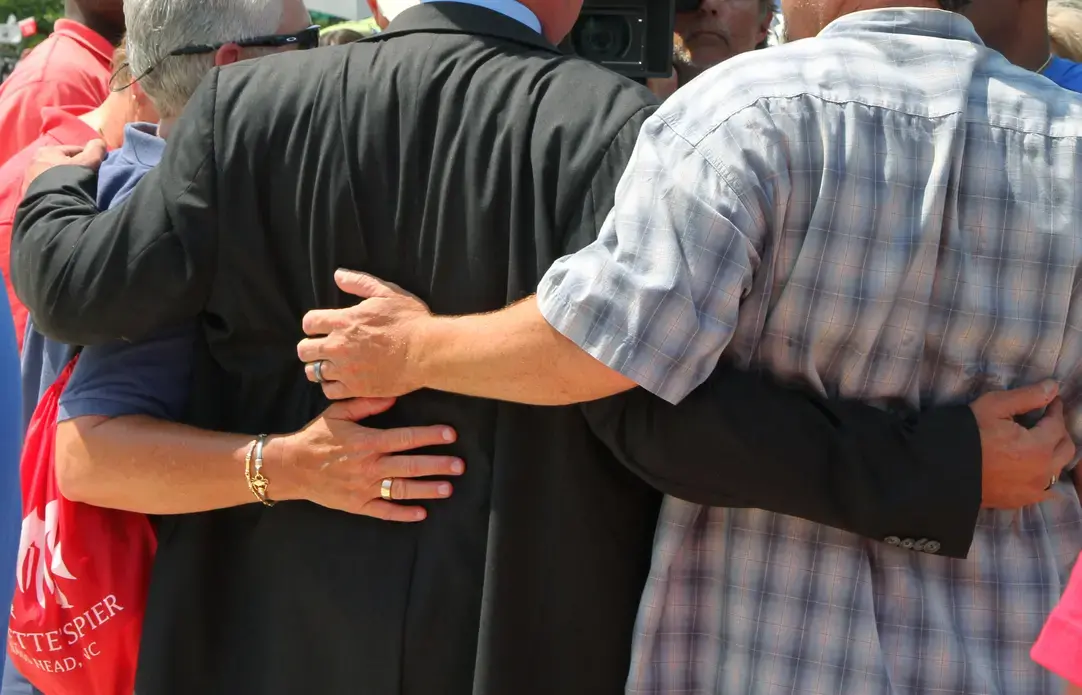While the U.S. Supreme Court this week issued two rulings in support of gay marriage, Jamaica's Supreme Court began hearing arguments in the case of a gay activist evicted from his apartment on the basis of his sexual orientation, and Jamaica's parliament will soon debate the repeal of an 1864 law that defines homosexuality as "an abominable crime." (Update: hearings delayed until October.)
A government spokeswoman predicted that the debate will be "ugly."
The island nation may be one of the most unwelcoming places on earth for gay people. According to a 2011 study, 85 percent of Jamaicans feel that homosexuality should be illegal and 82 percent feel it is "morally wrong."
Violence against the LGBT community is a real and increasing threat, one that prompted documentary producer Micah Fink to make a film about the plight of Jamaica's gay community. "The Abominable Crime," which was supported by the Pulitzer Center, premiered this week at San Francisco's Frameline Festival.
The discrimination case against the evicted activist is the second one related to gay rights before the Jamaican court this year. Maurice Tomlinson, a Jamaican gay rights activist and a central figure in the film, sued Jamaica's TV stations for violation of free speech laws when they refused to air a 30-second advertisement advocating tolerance.
In the U.S., anti-sodomy laws were struck down by the Supreme Court 's 2003 Lawrence v. Texas ruling. There have been several victories since, including the repeal of "Don't Ask, Don't Tell," the passage of marriage equality laws in many states and this week's landmark decisions.
Marriage equality activists young and old gathered in front of the Supreme Court to voice their support for the court's ruling and the changing tide of public sentiment in this country.
David Baker, 24, originally from Salt Lake City, Utah, said he had been in front of the court building since 7:30 a.m. waiting for the decision. "Growing up gay and Mormon, I was always looking forward to getting married," he said. "Civil marriage is a civil right, and I'm grateful that the Supreme Court has confirmed that fact, at least on a national level."
Another activist, Michelle McLeod from Germantown, MD, said that open-minded churches have helped the equality movement pick up steam.
"You can just hug anybody today," she said.
McLeod said she was discharged from the Navy due to her sexual orientation before the "Don't Ask, Don't Tell" policy was implemented in 1993, and she has been an activist ever since.
But while the many in the religious and political communities in the U.S. have been gradually more accepting of homosexuality, Jamaica's religious community and political leadership are still largely opposed. Churches organized major protests in response to the recent lawsuits. Politicians are outspoken opponents of gay rights; a former politician interviewed in "The Abominable Crime" said that he "detests [homosexuals'] filthy ways."
While the U.S. still has a long way to go before full marriage equality is reached, it was notable that there was only one conspicuous protester in front of the court building when the decision was announced.
Ronald Brock, a self-described "born-again Christian," stood across the street from the Supreme Court building with a large sign that read "Supreme Court: Repent or Perish. You are not God."
Meanwhile, a number of church groups made signs supporting marriage equality. President Barack Obama called several of the plaintiffs and their lawyers to congratulate them, and Secretary of Defense Chuck Hagel announced his support.
For McLeod, the Navy veteran, the moment is especially sweet. "Those of us who were humiliated, we spoke up, and we're not in the closet anymore. So now you can say I have a friend or relative [who is LGBT]. That wasn't there when I was growing up," McLeod said.
In Jamaica, those who speak up risk their lives and have little support from the police, legislature or community. Tomlinson receives death threats, but still continues his fight for rights, returning to Jamaica regularly.
Fink's documentary also tells the story of Simone, a Jamaican woman forced to flee the country after she was shot on the streets of Kingston because of her sexual orientation. Of those who criticize her, she says: "They are not God. God knows who I am, and no man can judge me, no man at all."
• Amanda Ottaway and Rebecca Gibian contributed to this article.
• See the schedule of "The Abominable Crime" screenings here and follow @abominablecrime on Twitter for updates.
- Document

























